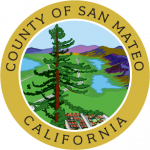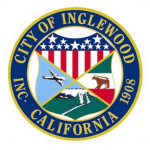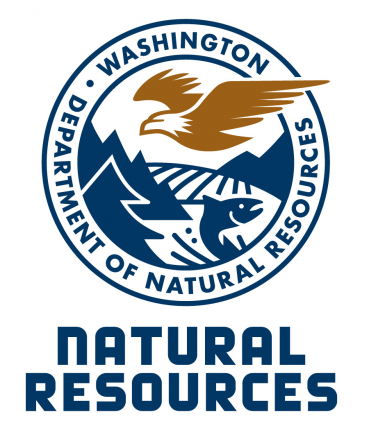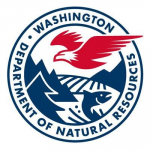Explore Top Government Internships & Kickstart Your Career

Introduction: Why Government Internships Matter

Government internships provide a valuable platform for students and recent graduates to gain practical experience, enhance their resumes, and establish networks in public service. Whether at the federal, state, or local levels, internships allow participants to observe and contribute to real-world government operations.
The federal government offers a variety of internship opportunities in different fields, such as policy development, emergency management, law, and science. These opportunities help young professionals explore career paths while contributing to meaningful work that impacts the nation.
Government internships develop critical skills and serve as a stepping stone to long-term careers in public service. Programs such as the Recent Graduates and Pathways Programs are designed to transition interns into full-time positions in federal agencies, ensuring that interning is impactful and career-driven.
Types of Government Internships
Internships in the government sector are diverse, ranging from working directly in federal agencies to positions within organizations that partner with the government. Here are some key types of internships:
Federal Internships:
These internships provide a unique opportunity to work within major federal agencies, such as the Federal Emergency Management Agency (FEMA), the National Credit Union Administration (NCUA), and the Federal Housing Finance Agency (FHFA). Interns can contribute to national initiatives in various roles, from policy analysis to logistics and human resources.
State and Local Internships:
In addition to federal programs, students can intern with state and local governments, focusing on regional issues such as public health, urban development, and law enforcement. Internships with state health departments or local city councils allow students to make an impact within their communities while gaining valuable government experience.
Government-Related Fields:
Outside direct government roles, internships in related fields such as non-profits, think tanks, and private companies working on government contracts are also valuable. Organizations involved in national security, public health, or environmental protection offer internships that allow students to contribute to areas of national interest.
Internship Opportunities in the Federal Government
The White House Internship Program:
The White House Internship Program allows students to work closely with the White House Office, supporting various administrative initiatives. Interns in this program gain leadership skills by assisting with policy development, communications, and event planning.
This prestigious program allows interns to be at the heart of the executive branch and develop their professional networks. Involvement in high-level operations within the executive office provides interns with a robust understanding of government functions.
Federal Emergency Management Agency (FEMA) Internships:
FEMA internships provide hands-on experience in disaster response and emergency management. Interns can work in logistics, human resources, and finance, helping develop disaster preparedness plans and policies. With FEMA’s focus on public safety and disaster recovery, interns are exposed to critical national security functions, contributing to real-time disaster response.
National Credit Union Administration (NCUA) Internships:
Interning with the National Credit Union Administration (NCUA) allows students to work in regulatory roles, helping to supervise and manage the nation’s credit unions. Interns assist in regulatory compliance, financial auditing, and accounting, gaining practical skills in finance and governance. The NCUA internship is an excellent opportunity for those interested in civil service roles within financial management.
Internships by Field
IT and Computer Science Internships:
Internships in IT and computer science offer students the chance to work with cutting-edge technology and cybersecurity. Programs within the National Science Foundation (NSF) and the Central Intelligence Agency (CIA) allow students to contribute to developing and implementing IT systems, software, and security infrastructure. These positions are particularly relevant in the age of national cyber director-led cybersecurity initiatives.
Law and Policy Internships:
For students interested in policy-making and legal processes, law internships with agencies like the National Labor Relations Board (NLRB) and the Federal Energy Regulatory Commission (FERC) provide experience in legislative drafting, policy analysis, and regulatory oversight. Interns work on real-time legal issues, gaining experience in law and governance.
Science and Engineering Internships:
Engineering and science internships with agencies like NASA and the National Institutes of Health (NIH) provide a hands-on opportunity to work on scientific research and development projects. These internships offer insights into scientific innovation and public health initiatives, making them ideal for students in STEM fields.
Application and Hiring Process

Student Volunteer Program:
The Student Volunteer Program is a fantastic way for high school and college students to gain experience in federal agencies without formal employment. This program allows students to volunteer their time while gaining professional skills. Applicants must typically submit a resume, cover letter, and academic transcripts.
Resume and Cover Letter Tips:
When applying for government internships, it’s crucial to tailor your resume and cover letter to each agency’s specific needs. For instance, those applying to agencies like the Government Accountability Office or the Federal Communications Commission should highlight their analytical and communication skills and any relevant coursework or experience.
Interview Preparation and Tips:
Preparing for an internship interview requires thorough research of the agency. Understanding the mission and responsibilities of organizations like the Social Security Administration or the Environmental Protection Agency can help you stand out during the interview process. Practice answering common interview questions, and be prepared to ask thoughtful questions about the agency’s projects and future goals.
Tips for Succeeding in a Government Internship

Be Proactive:
Taking the initiative in your internship is critical to standing out. Look for new projects or responsibilities beyond your assigned tasks.
For example, if you’re interning at the Federal Deposit Insurance Corporation or the National Drug Control Policy office, offer to contribute to ongoing research or policy development. Government agencies like the Federal Trade Commission or the General Services Administration are large organizations, and interns who show initiative can leave a lasting impression.
Build Relationships:
Networking is crucial in any government internship. Building solid relationships with your supervisors and peers can open doors to future employment.
Many interns, especially those involved in programs like the Recent Graduates Program or working in departments such as Health and Human Services, secure full-time positions through the networks they create. The connections you form in internships, whether in the National Space Council or human resources management, could be the foundation for a successful public service career.
Seek Professional Development:
Government internships offer a wealth of opportunities for professional growth. Many agencies provide access to training programs, workshops, and mentorship opportunities.
Taking advantage of these programs, such as those available through the Merit Systems Protection Board, can sharpen your skills and prepare you for future roles. Continuous learning, whether through technical skills in policy analysis or leadership development, will make you a strong candidate for federal careers.
Conclusion: Finding a Government Internship Program
Whether interested in public health, IT, or policy, government internships provide an unparalleled opportunity to explore federal careers. Programs like the Recent Graduates Program and internships at agencies such as Health and Human Services and the National Space Council offer real-world experience that can jumpstart your career. Being proactive, building professional relationships, and taking advantage of development opportunities will pave the way for a rewarding career in the federal government or beyond.
























































